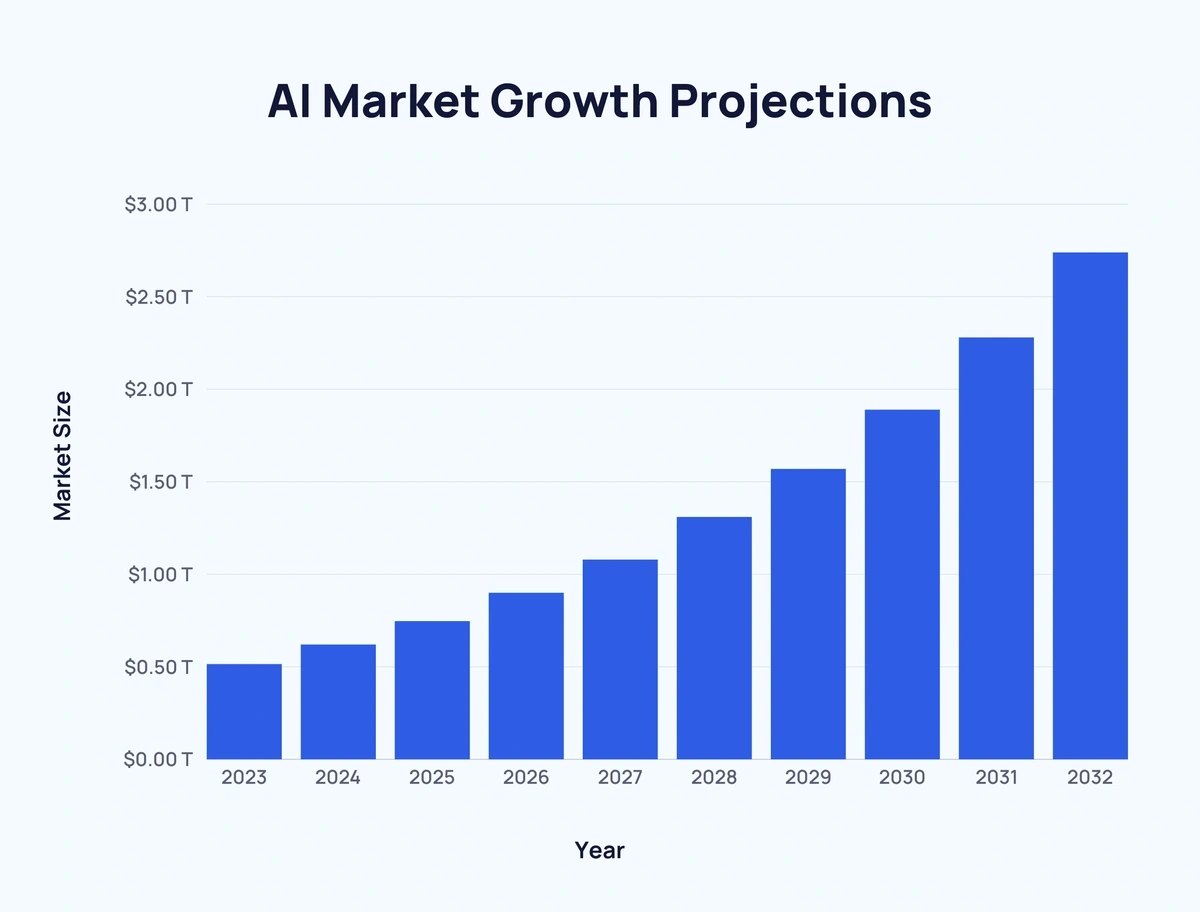AI Revolutionizing Customer Conversion in 2025
AI is transforming marketing in 2025 by enhancing customer conversion through personalization, predictive analytics, and optimized interactions.

AI Revolutionizing Customer Conversion in 2025
Artificial intelligence (AI) is rapidly reshaping how brands engage with customers, driving higher conversion rates, improving personalization, and enabling smarter marketing strategies. In 2025, AI is no longer a futuristic concept but a critical business tool powering customer acquisition and retention across industries. This transformation was recently highlighted in a Search Engine Journal webinar and supported by a wealth of new data, revealing how AI is helping brands convert more customers through hyper-personalization, predictive analytics, and optimized customer interactions.
The Growing Role of AI in Marketing
AI's impact on marketing has surged dramatically, with the AI marketing market valued at $47.32 billion in 2025 and expected to more than double to $107.5 billion by 2028. This growth is driven by AI’s ability to automate routine tasks, generate personalized content, and optimize campaigns in real time. Notably:
- Nearly 90% of Fortune 1000 companies are increasing AI investments for its economic potential.
- By 2025, it is predicted that 30% of outbound marketing messages from large companies will be AI-generated.
- AI marketing tools are evolving from passive automation to strategic collaborators that help marketers design better campaigns, perform customer segmentation, and predict which messaging resonates best.
Companies that integrate AI deeply into their marketing systems are no longer just adding tools; they are restructuring go-to-market operations around AI capabilities to gain a competitive edge.
Key AI Technologies Driving Customer Conversion
Several AI-driven technologies are central to helping brands convert more customers:
- AI-Powered Personalization: AI analyzes vast datasets to deliver hyper-personalized communications at scale. For example, a telecommunications company used AI to identify customer behavior patterns and tailor messages accordingly, increasing customer satisfaction by 15-20% and revenue by 5-8%.
- Predictive Analytics: By clustering customer data and predicting future behavior, AI helps brands anticipate needs and target marketing efforts with precision, reducing wasted spend and increasing conversion efficiency.
- Chatbots and Virtual Assistants: Widely adopted by franchise brands (60% usage in 2025), AI-powered chatbots enhance customer experience by providing instant, personalized responses, boosting engagement and satisfaction.
- Generative AI Content Creation: Tools like Jasper and Copy.ai generate marketing content guided by data-driven insights, accelerating content production while maintaining relevance and quality.
Business Impact and Customer Experience Gains
The application of AI in marketing is delivering measurable improvements in customer engagement and conversion:
- 43% of franchise marketers reported greater efficiency in customer service due to AI, more than doubling from the previous year.
- 38% saw improved customer satisfaction scores, and 35% achieved better personalization, both up significantly year-over-year.
- AI-driven marketing is also helping brands reduce manual workload, enabling staff to transition from execution to strategic roles focused on high-impact decisions.
Moreover, AI’s role as a commerce influencer is expanding. AI-powered platforms increasingly integrate native checkout experiences, such as OpenAI’s collaboration with Shopify, allowing consumers to discover and purchase products directly through AI interfaces—a trend that could reshape digital commerce entirely.
Challenges and Considerations
Despite its promise, AI adoption in marketing is not without challenges:
- Nearly 50% of businesses express concerns about data privacy and ethics when using AI marketing tools.
- Accuracy and bias in AI-generated content worry 43% of businesses, highlighting the need for careful oversight.
- There are risks related to overreliance on AI, including potential discriminatory practices and brand safety concerns.
These factors underscore the importance of combining AI capabilities with human judgment and ethical frameworks to ensure trustworthy and effective marketing.
Looking Ahead: AI as a Strategic Driver of Growth
The future of marketing lies in AI-driven “next best experience” strategies that continuously adapt to customer context and behavior, creating seamless, relevant interactions across channels. Brands that embrace AI as a strategic partner rather than a mere tool are poised to outperform competitors by delivering superior customer journeys that convert more effectively.
Industry leaders are already investing heavily in AI to stay ahead, with 75% of franchise brands planning future AI investments. As AI technologies mature, we can expect even deeper integration of AI in marketing workflows, driving smarter segmentation, more dynamic content, and real-time optimization.
Visuals to Include
- Infographics illustrating AI marketing growth statistics and adoption rates in 2025.
- Screenshots or logos of leading AI marketing platforms like Jasper, Copy.ai, or Gong.
- Visual representation of AI-driven personalization workflows (e.g., customer data clustering, predictive analytics).
- Images showing AI chatbots or virtual assistants interacting with customers.
- Diagrams of AI-powered commerce integration, such as OpenAI-Shopify native checkout.
This comprehensive transformation demonstrates how AI is not only helping brands convert more customers today but fundamentally changing the nature of marketing strategy and execution for the future.



